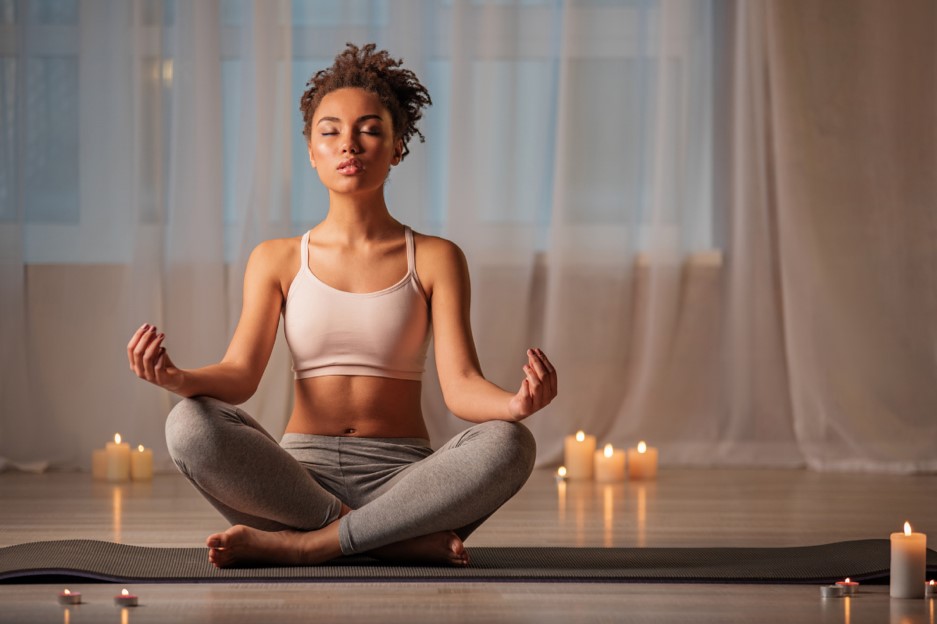Understanding Meditation And How To Meditate.
Are you new to the concept of meditation and would like to understand how to go about it?
Perhaps you´ve heard others raving about it and its benefits, while others say that it is a load of woohoo. You may have even tried it and got distracted by interrupting thoughts like your mountain of to-dos and time constraints, or maybe you felt deep relaxation and even fell asleep, especially if you have been meditating while in or on your bed. Then this article is especially for you.
Reasons for Meditating
There are many reasons to meditate, and the benefits are endless. You may want to improve your mental acuity, increase productivity, or improve your health and well-being. Other reasons include gaining clarity on a situation that you are unclear on and if you are embarking on a journey of self-development or welcoming in spirituality, you realise that meditation is a powerful tool to help you achieve all of these things.
Personally, I believe that meditation, is a wonderful way to connect with God. We use prayer to communicate with God, and ask for guidance or help, but meditation allows you to connect with God in a manner that transcends verbal communication. This uses all of your senses, lights up your chakras, and positively ignites your energy field. I believe that God resides in all of us, and we can access and activate that part of us through meditation. How’s that for a reason?
5 Benefits of Meditation
1. Meditation Reduces Stress
Stress, be it physical or mental in nature leads to production of the stress hormone Cortisol. An increase in levels of Cortisol causes disruption in your sleep patterns, leading to fatigue and clouded thinking or “brain fog”, it also leads to elevated blood pressure levels.
2. Meditation Improves Sleep
Should you find yourself unable to fall asleep easily and quickly and stay asleep for at least 8 hours, then meditation is a natural and healthier means to help your body to relax and to reduce tension. The breathing and focused relaxation of your body, allows you a more peaceful state of being thereby helping to fall into slumber effortlessly. Meditation is also known to reduce the severity of insomnia without the need for medication such as relaxants or sleeping pills, which can be highly addictive. Improved quality and increased duration of sleep also means diminished irritability, leaving you feeling calmer and more at ease during the day, and better equipped to deal with situations like deadlines, traffic, juggling home life with work and meeting all of your commitments.

3. Meditation Assists In Pain Control
Ever wonder why some people have a “high threshold” for pain, and others feel it more? Some people even derive pleasure from it. That is because of how our brains perceive pain and its intensity. How we strongly feel or perceive pain is largely determined not by the external circumstances but by the story we tell ourselves about the pain. Think of a time you had your finger pricked to draw blood for a sugar level test or attempted removing unwanted hair on your own, only to find that the anticipation of the pain is worse than actual pain itself. Meditation and the breathe work has been shown to alleviate headaches, assist with menstrual cramps and speed up recovery from surgery. Your short and long term health improves dramatically when choose to meditate instead of medicate, increasing your immune function and reducing cellular inflammation and in addition your money can be spent on the things you love and enjoy, instead of on over the counter pain meds.
4. Meditation Improves Productivity
Incorporating meditation into your daily morning routine allows for a positive start to the day. Not only will you notice how your sleep patterns are improved and feel the brain fog lifting, but you are also able to improve your memory and recall abilities. Meditation heightens your aptitude for multi-tasking, without forgetting important matters because your focus and attention improves, allowing you to tackle your tasks more efficiently, not to mention that meditation improves feelings of happiness, so you may just find that the tasks you once found tedious and annoying are suddenly something you complete without thinking twice about it, not to mention that it improves your creativity.

5. Meditation improves Mental & Physical Health
Meditation is said to be a natural “anti-depressant,, improves brain function, and is known to boost your overall happiness, it assists in weight loss, helping you to curb emotional eating or over-eating, and it even helps with various types of addiction, such as smoking.
7 Steps: How To Meditate
- Create a loving and peaceful setting: Before you start your meditation practice, you may choose to have sage incense sticks burning in the background, light candles and listen to calm meditation tunes or a guided meditation. Wear clothes that are loose and comfortable, that allow for oxygen and blood flow to your entire body.

2. No distractions: Choose a time when no one will disturb you, before the dog needs his morning walk or before the morning breakfast run. So that it is just you and your mind present, turn off any distractions, such as the television, and put your phone on silent.
3. Posture: Sit upright, on a flat, firm surface, ensure that your spine is straight and support your back and neck with pillows for comfort. Softly close your eyes.
4. Breathe: Gently breathe in a deep breath, fill your lungs all the way into your diaphragm, allowing your belly to rise. Breathe out, letting out all the air, allowing your belly to gently contract as you release any residual air. Let the breathe come in and leave comfortably.

5. Quiet your thoughts: Be aware of your surroundings, be present in the room and the space you are in, notice a sense of tranquillity. Direct your thoughts toward your beathing, becoming aware of your body, your head, shoulders, chest, arms, abdomen, your legs and your feet, and feel your body sink into relaxation. To go deeper into relaxation, count backwards from ten to zero.
6. Visualise: Using theatre of the mind, visualise the scenery of your favourite guided meditation, or, using an unguided mediation, listening to the soothing tones, picture the day you would like to create for yourself, what you would love to bring into your life. Be kind to yourself if you find your mind wandering, allowing yourself to come back to your visualisation.

7. End your meditation with kindness: Towards yourself, those in your home and those you will encounter during the day. Send yourself and others blessings, and feel yourself wrapped in serenity, well-being and happiness.
Mediation takes practice. Practice this daily, and your meditation will improve.

